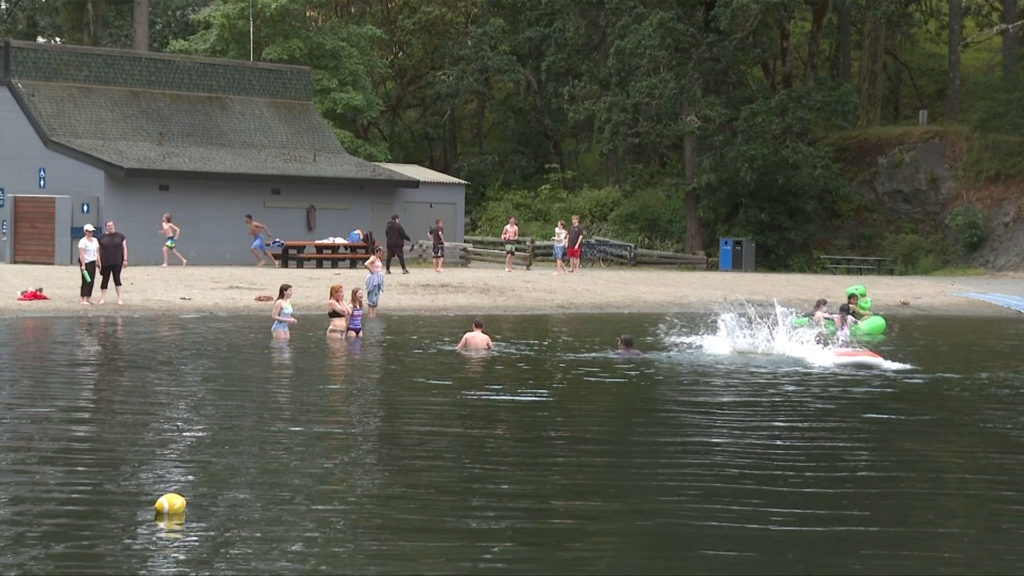
B.C. officials are stressing swimmer safety, especially over the summer months when people take to bodies of water and fatal drownings become more common.
Across the province, 101 people died by accidental drowning last year, with 18 deaths recorded in July, according to BC Coroner Service (BCCS) statistics.
July 25 is World Drowning Prevention Day, so the BCCS and the Lifesaving Society have teamed up to share “a timely reminder of the risks associated with water activities,” reads a news release from the province.
The BCCS says data revealed most deaths occurred in rivers, creeks, lakes and ponds, with nearly one in five happening while a person was boating. “That same figure was reported for falls into the water and while swimming,” it says.
A recent drowning incident in Langford sparked calls for safety equipment at all popular swimming locations in Greater Victoria, including Thetis and Elk lakes. On June 15, 17-year-old Keron McKay was pulled from Langford Lake, unconscious, and died in hospital a few days later. A GoFundMe was set up for his family.
Langford Lake, for example, has no lifesaving equipment or lifeguards, prompting people to push for more water safety measures after the June 15 incident.
“This is not a unique occurrence, unfortunately. It happens every year,” Derek Gent, CEO of YMCA-YWCA Vancouver Island, told CHEK News.
“The more we can do to build awareness and enhance the safety, the better.”
READ MORE: Drowning incident in Langford triggers calls for safety equipment
The BCCS says that in 2023, males accounted for four in five accidental drowning deaths, while seven per cent were under 19, and those aged 19 to 29 accounted for one in five. The most fatal drownings, 29, were reported at Okanagan Lake.
“Our report looked at a 10-year period between 2013 and 2023, and we can see there is a higher percentage of drownings in the province during the months of May through August,” said John McNamee, the BCCS’ acting chief coroner.
“Our report gives great clarity to the many dangers that water can hold. In 2023, just seven of those who died were not from B.C., so we hope both residents and visitors will take extra steps to enjoy water-based activities safely.”
Swimming? Buddy up, says advocate
Lenea Grace says it’s “crucial” to stay water-smart.
“Keep children within arm’s reach and never leave kids or non-swimmers unsupervised at the beach, by the lake or in the bathtub at home,” said Grace, executive director of the Lifesaving Society BC and Yukon.
“We urge British Columbians to swim with a buddy in lifeguard-supervised areas, wear your life-jacket when boating, and refrain from using alcohol and/or drugs while on the water,” she added.
“Don’t drink and drown!”
Between 2013 and 2022, alcohol and/or drugs were found to be a contributing factor in 39 per cent of accidental drowning deaths, adds the BCCS. Stats for 2023 are not yet available.
The British Swim School, a learn-to-swim provider, offers tips for people enjoying backyard pools. They recommend appointing a “water watcher,” or an adult whose only job is to watch the pool, installing safety barriers, and never leaving toys near unattended bodies of water, as they can be tempting for kids.
Education is key, according to the Lifesaving Society.
“…we need to tell the public that drowning doesn’t look like what you think it looks like from movies,” said Kimiko Hirakida, the society’s director of programs and services, in a previous interview.
“You aren’t necessarily going to see someone flailing and calling and screaming for help.”




